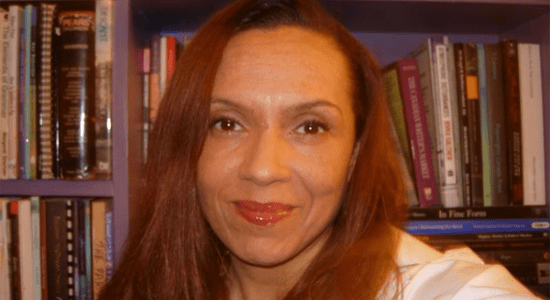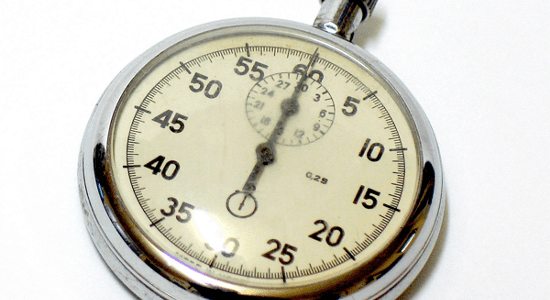Tell us about yourself.
I am a poet who started on the page, and then fell in love with poetry through performance. I’ve been writing, performing, publishing and teaching poetry and spoken word for almost 20 years. I’ve recently gone back to school to get my Masters of Fine Arts in Creative Writing, and am working on my thesis.
When did you realize you had a passion for writing?
I’ve always loved writing, and wanted to be a writer for as long as I can remember. When I was in elementary school, I was constantly cooking up stories of suburban kids, like me, on wild adventures. When I hit adolescence, it was all about poetry. I used to copy poems I loved and hang them framed on the wall. I started keeping my poems in journals around this time, and I still have most of what I wrote back then.
What piece(s) of writing/author(s) have had the greatest impact on you?
For fiction, it was when I read the work of Toni Morrison, Alice Walker, Margaret Atwood, and Margaret Laurence in my early teens that I decided I’d like to someday try to write a novel myself. For poetry, when I was an adolescent I was into T.S. Eliot and Robert Frost. As a teen, I was blown away by the raw, unapologetic energy of Ann Sexton and Sylvia Plath. I think the biggest influence when I was in my 20s was Rumi, as well as spoken word poets like Lillian Allen, Patricia Smith, and Saul Williams.
How and when do you find time to write?
For the most part, I’ve been a feast or famine sort of writer—either writing all the time or not at all. Deadlines are good motivators for me. I often produce work because I’ve promised I’d deliver it. The pressure seems to blast past any writer’s block. It’s really hard for me to start a piece of writing. I struggle with resistance a lot (though much less after reading a great little book called The War of Art by Steven Pressfield), but once I get going I’m manic about it. Everything else in my life goes on hold. (I bathe and eat, though grudgingly.) Lately though, I’ve been trying to develop a more regular writing practice, which seems to be a better pace for me when working on fiction. I used to loath routines, but I now find I work best when I write every day. Evening is best for me. I like to write when the hum of the city has died down for the day.
What are some of the biggest challenges you’ve faced as a writer?
I think the biggest challenge for me was believing that it’s possible to make a life for myself as a writer. When I went to Carleton University for my undergrad, I started in the journalism program. I was trying to find a way to write and still be able to support myself financially. The idea of doing that as a poet seemed ridiculously impossible. But after a year into the program, I realized that journalism was a completely different animal than the sort of creative writing that fed my soul. I decided to abandon the idea of writing as a career, and switched majors to psychology (with a minor in creative writing).
I worked in the field of social services with adults with cognitive disabilities for almost a decade after I graduated. I still wrote, but writing was not the centre of my life. In my late 20s, poetry began to move back to the centre, however, when I volunteered to host a word show at a university campus radio station. My job was to go to poetry events and report on what was happening in the scene, as well as doing on-air interviews with local poets. This experience re-ignited my passion for poetry and led to my fist reading.
It was around the time I turned 30 that I finally decided to leave the world of social services to focus on my first love: literature. Although I wasn’t sure how I’d make a living, I knew I had to be true to myself. I began working part-time in the field of arts administration for writing organizations such as the League of Canadian Poets, which was a wonderful experience. I learned a lot about the literary community in Canada, as well as picking up ideas on how I could sustain myself financially.
Since then, I’ve learned the art of making a living as a writer. It means being flexible, and often having many different projects on the go to make ends meet. I do mostly contract work now . . . teaching writing and performance, as well as some freelance writing and poetry performance gigs. It hasn’t always been easy, but I have no regrets about the decision to put writing back at the centre of my life. The ability to do so has been a blessing for which I am extremely grateful.
How have you changed as a writer over the years?
Although my writing has evolved over the years, I think I’m still writing about the same things I was always interested in . . . love, death, spirituality, equality and injustice. What’s changed the most is the form I use to explore these themes.
At first I wrote poetry for the page, and had a collection published. Then, as I became more interested in performance, I started studying acting and wrote and performed a one-woman one-act show (a hybrid of theatre and spoken word). I also became interested in poetry and music, and produced a CD.
Throughout this time, I still dream of one day writing a novel. A few years ago I took a shot at it, but found the scope of such a large project overwhelming. It was then that I decided that the best way to get a grip on fiction was to go back to school. Since entering the MFA program at the University of Guelph, I’ve had a chance to be mentored by some fantastic fiction writers, and am now in the process of completing my first novel for my thesis. It’s been a wonderful experience, which has left me with the knowledge that, as a writer, there is always more to learn.
I plan to keep following my muse . . . working in the forms that most inspire me, continuing to study and work on my craft, and share what I’ve learned with those just starting out on their path.
Final Words: A poet’s advice to students
A poet is somebody who feels, and expresses his feeling through words.
This may sound easy. It isn’t.
A lot of people think or believe or know they feel—but that’s thinking or believing or knowing; not feeling. And poetry is feeling—not knowing or believing or thinking.
Almost anybody can learn to think or believe or know, but not a single human being can be taught to feel. Why? Because whenever you think or you believe or you know, you’re a lot of other people: but the moment you feel, you’re nobody-but-yourself.
To be nobody-but-yourself—in a world which is doing its best, night and day, to make you everybody else—means to fight the hardest battle which any human being can fight; and never stop fighting.
As for expressing nobody-but-yourself in words, that means working just a little harder than anybody who isn’t a poet can possibly imagine. Why?
Because nothing is quite as easy as using words to sound like somebody else. We all do exactly this nearly all of the time—and whenever we do it, we are not poets.
If, at the end of your first ten or fifteen years of fighting and working and feeling, you find you’ve written one line of one poem, you’ll be very lucky indeed.
And so my advice to all young people who wish to become poets is: do something easy, like learning how to blow up the world—unless you’re not only willing, but glad, to feel and work and fight till you die.
Does this sound dismal? It isn’t.
It’s the most wonderful life on earth.
Or so I feel.


